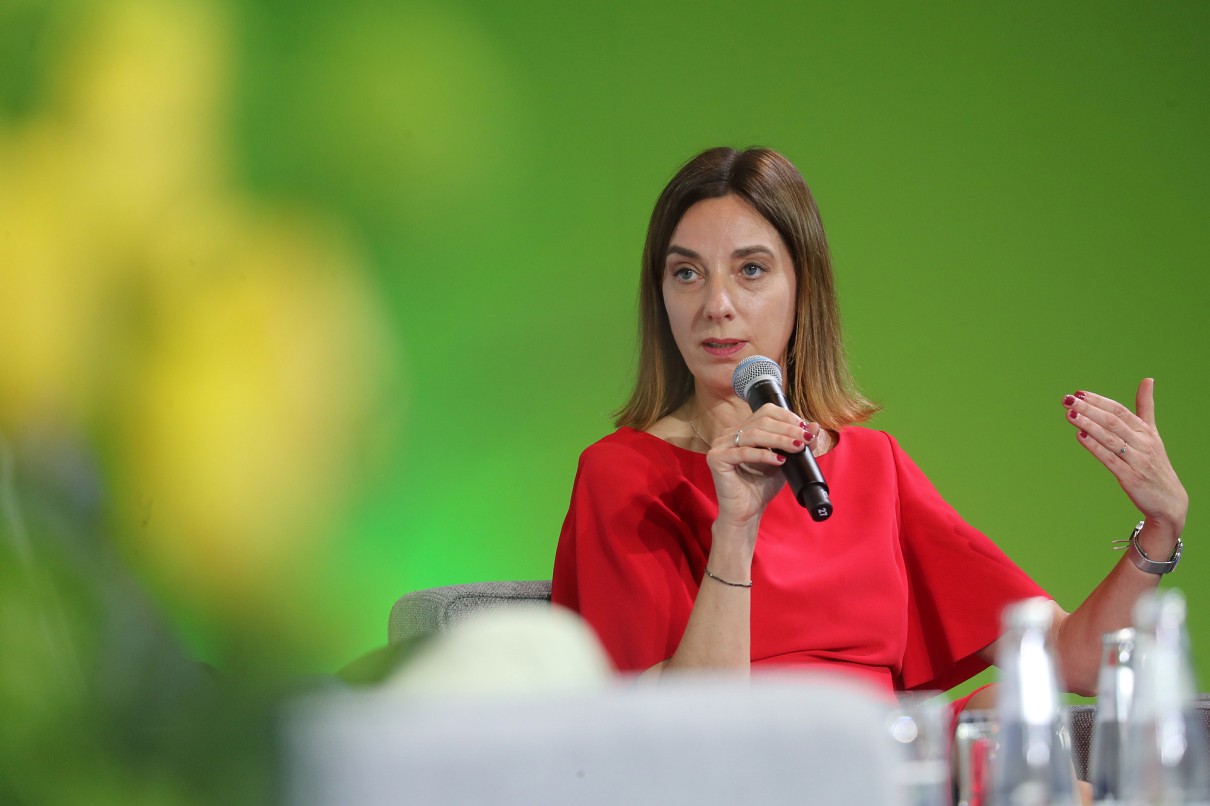Page content
Against bureaucracy and for fair competition
Ms. Leonard, what are your association’s main political demands?
Christiane Leonard: the bdo’s main aim is to improve overall conditions for private bus operators. That includes making clear that real entrepreneurship has a value and a fixed place in government funding. Unfortunately we all too often see public funding extended to bringing public transport under municipal control, which means that what were once private bus services are now run by a municipal company. We are also fighting red tape and excessive consumer protection and campaigning for fair competition between transport companies as well as implementing the transition to alternative drives. At present the ’Deutschlandticket’ is a primary concern of course.
In what sense?
Christiane Leonard: Unfortunately nothing is clear yet. From a customer perspective the ticket is an incredible success. People often save hundreds of euros a year and can take a trip with almost any bus and local rail service in Germany. However, the future of the ’Deutschlandticket’ is still unclear, and with it any planning certainty for companies. Funding is not guaranteed for this year or 2025, nor can we be certain that federal and state authorities will provide funding for the ’Deutschlandticket’ in 2026. Customers need to be able to plan ahead. Being able to firmly count on the availability of a low-cost Germany-wide ticket comes before possibly deciding to get rid of a second car. The same applies to companies. Nobody knows what lies ahead. It is also completely unclear how future revenues will be distributed. How can companies make plans and prepare to invest?
What obstacles do you see with the introduction of alternative drives?
Christiane Leonard: While there are still considerable challenges regarding the refuelling and charging infrastructure, it is the high price of zero-emission buses that is stalling the changeover to new drives. Once buying electric buses becomes an economically viable choice for companies, switching to alternative drives will take no time at all. At that point there will be no need for setting fleet emission limits or procurement quotas. Currently however, the overall running costs of an electric bus considerably exceed those of a diesel bus. As long as that is the case, no sensible company will voluntarily purchase an electric bus unless it has to.
What can policymakers do to help?
Christiane Leonard: We need guaranteed long-term funding. The government’s decision to no longer subsidise electric buses may be sound in terms of the federal budget, it is however untimely and will have a long-term negative impact on the transition to electric buses. We need funding that does not depend on the relevant minister’s budget constraints. That is why a number of years ago the bdo developed an electricity price concept for buses. The idea is for state-subsidised low-cost electricity to reduce bus operating costs to an extent that, despite the higher purchase cost, a battery-electric bus becomes economically more viable over an entire life cycle than its conventional counterpart. Companies would be subsidised via their electricity bill so-to-speak. That would create planning certainty, cut red tape and considerably accelerate the transition to new drives.
How can policymakers help to combat the skills shortage?
Christiane Leonard: We have reason to celebrate a major success in the European Parliament. The EU delegates have decided to remove major obstacles to obtaining a bus driver’s licence from EU law. The minimum age has been reduced for example. EU member countries must now sign on to this parliamentary decision. However, the biggest cause of driver shortages could be solved domestically. In Germany, obtaining a bus driver’s licence costs around 13,000 euros, in Austria however it only costs 3,000 euros. If we could manage to streamline getting a bus driver’s licence and combine it better with HGV driving qualifications, that would be a real win. The bdo supports this “2 in 1“ concept and is in close contact with the Federal Ministry of Transport and the Bundestag. We are fighting for change to come soon.



